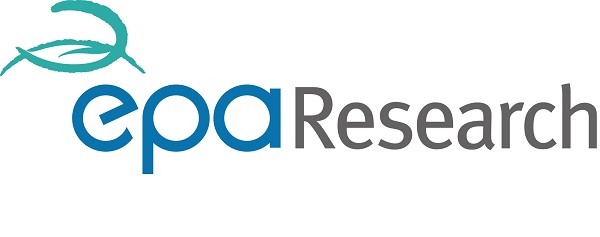Development of Quality Standards for Compost and Digestate in Ireland

The EPA has published the Research 375: Development of Quality Standards for Compost and Digestate in Ireland. In Ireland, there are no national end-of-waste criteria for compost and digestate derived from source-separated materials. This study developed a quality standard for digestate and an updated standard for compost, it also recommends a strategy on how Ireland should implement national end-of-waste criteria for compost and digestate. It also examined best practice in other countries and options for having end-of-waste criteria.
Project Highlights: Watch the project highlights video
On behalf of the research team, I would like to thank the valuable input from members of the project steering committee, namely Caroline Murphy (EPA), Vivienne Ahern (Department of the Environment, Climate and Communications), Professor James Clark (University of York), Patrick Barrett (Department of Agriculture, Food and the Marine) and John Clarke (Department of Agriculture, Food and the Marine); as well as Karen Roche (Project Manager on behalf of the EPA).
Link to the Report: http://www.epa.ie/researchandeducation/research/researchpublications/eparesearch2030reports/research375.html
Authors: Percy Foster and Munoo Prasad
EPA-funded research generates a scientific base to support environmental protection. Projects are carefully targeted to deliver on three key areas: Identifying pressures; Informing policy; and Developing solutions
Identify Pressures
In Ireland, there are no national end-of-waste criteria for compost and digestate derived from source-separated materials. There are varying quality standards being used by composting and anaerobic digestion plants. Overall, the system needs a uniform set of quality standards for compost and digestate, which would replace existing standards being applied. This study will also recommend a strategy on how Ireland should implement national end-of-waste criteria for compost and digestate.
Inform Policy
Recent European Union (EU) circular economy and bioeconomy policies and the New European Green Deal promote the recycling of nutrients from organic wastes into products that can be used as soil improvers and fertilisers, thereby reducing the use of mineral fertilisers. This has renewed interest in the use of compost and digestate as potential fertilisers. This study developed a quality standard for digestate and an updated standard for compost. It also examined best practice in other countries and options for having end-of-waste criteria.
Develop Solutions
The research developed should be used by the National Standard Authority of Ireland to update Irish Standard (IS 441) on compost and develop a new IS standard for digestate. The findings of this study can be used in an application to the Environmental Protection Agency by industry for national end-of-waste standards for compost and digestate. The possible approach that could be taken in Ireland to define end-of-waste criteria is by implementing either biowaste ordinance legislation or a national fertiliser regulation. It should include the requirement that compost or anaerobic digestion plants proposing to produce an end-of-waste product be compliant with a Quality Assurance Scheme that is monitored by a quality assurance organisation. By achieving end-of-waste status, it generates a level playing field. It also supports the development of a circular economy while still respecting the precautionary principle by avoiding pollution when compost and digestate are used on soil.
This project was funded under the EPA Research Programme 2014-2020. The EPA Research Programme is a Government of Ireland initiative funded by the Department of Communications, Climate Action and Environment. It is administered by the Environmental Protection Agency, which has a statutory function of coordinating and promoting environmental research.
The twitter account for the project is- https://twitter.com/Cre_CompDig
ENDS
Further Information contact:
Percy Foster, percy@cre.ie. T: 086- 8129260
“DISCLAIMER: Although every effort has been made to ensure the accuracy of the material contained in this press release, complete accuracy cannot be guaranteed. Neither the Environmental Protection Agency nor the authors accept any responsibility whatsoever for loss or damage occasioned or claimed to have been occasioned, in part or in full, as a consequence of any person acting or refraining from acting, as a result of a matter contained in this press release.”
Notes to Editor:
“EPA Research Programme 2014–2020 The EPA’s current Research Programme 2014–2020 is built around three pillars – Sustainability, Climate and Water. More information about the EPA Research Programme can be found by visiting the EPA website where you can subscribe to the Research Newsletter. This provides news and updates about research calls, events and publications that are of relevance to researchers and other interested parties. You can also follow EPA Research on Twitter @EPAResearchNews for the information and developments about the Research Programme and its projects.”